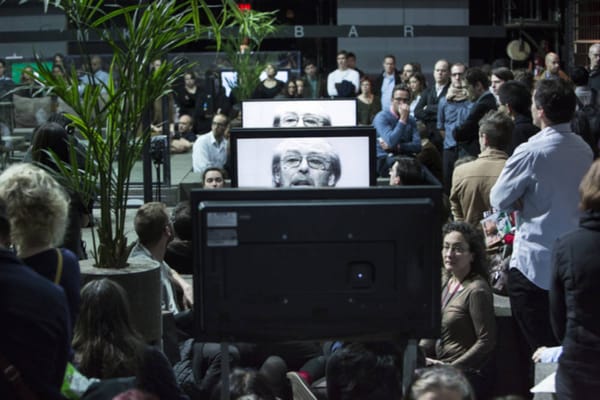Partenope | A brilliantly off-piste version of a little-performed classic
In Partenope, Claire Chan finds the most entertaining opera she has seen this year

Can 18th century humour still be relevant today? This is the question the ENO are attempting to answer, with the first reprisal of Christopher Alden’s production of Partenope. First performed in 1730, Partenope is an opera not often found on the operatic stage today. Opera in the early 18th century was dominated by Handel; Partenope was one of the few comic works amongst his more traditional opera seria. Alden’s production, based on the surrealist images of Man Ray, is possibly the best-known modern version; first staged in London in 2008, it has since been performed at the Sydney Opera House in 2011 and the San Francisco War Memorial Opera House in 2014. This season sees the Olivier Award-winning production returning to the ENO, starring Sarah Tynan in the title role.
The answer to the original question is a resounding yes. This is down to the genius of the production and the excellent characterisation of the singers, which draw out the comic potential in what could otherwise have been a very tedious three-hour long opera. There was always something happening on stage, whether it be Rosmira shattering glasses against the wall or Partenope doing a burlesque striptease. And lots of bananas! Fire! Tap dancing and scuttling top hats!
It is a six-person opera – no choruses needed – and the cast is wonderful. Their excellent vocal skills carry the opera through all its emotional ups and downs, to its happy conclusion; Patricia Bardon is exceptionally strong in the traditionally castrato role of Arsace, Partenope’s main suitor, and Stephanie Windsor-Lewis makes a feisty Rosmira – Arsace’s jilted ex-lover who cross-dresses as a man to pursue him . For comic relief, I especially appreciated James Laing, who drew the most laughs with his portrayal of the pathetically lovelorn Armindo. However, the singer who really stood out was Tynan, who played Partenope with seductiveness and aplomb; her regal, silvery voice had the audience falling over themselves for her just like her four suitors.
The singer who really stood out was Tynan, who played Partenope with seductiveness and aplomb
The English National Opera is known for its operas staged entirely in English, to the chagrin of some and the delight of others. In my experience it’s been a bit hit-and-miss. Translation requires some degree of interpretation – like reading foreign poetry, a great deal hinges on how closely the translator chooses to stick to the source material. Much credit is due here to Amanda Holden, whose hilarious translation of the original Italian libretto fearlessly transforms it for a modern audience. Spiced with casual profanity and full of unexpected anachronistic one-liners – at one point Rosmira bursts out, “You can be such a turd!” – the witty repartee garnered fresh laughs from the audience from start to finish.
It’s even funnier because of the contrast between the melodramatic lines and what the characters are actually doing on stage. In Act II, a captured Emilio is supposed to wax lyrical about how fortune has abandoned him; he’s been unlucky in both love and war. In this production, Emilio makes his escape from his prison (a locked toilet), mimes shadow puppets, and rips tape out of a film reel – all the while passionately singing, “Fate, you are hard on me / Such cruelty cannot be!” Sounds utterly mad, but it works. What else would you expect of a production based on a surrealist artist? This is a production that revels in its own absurdity and melodrama. Alden’s Partenope is undoubtedly one of the most fun and diverting operas I have seen all year.
Partenope is on at the ENO until 24th March. Tickets from £12.








